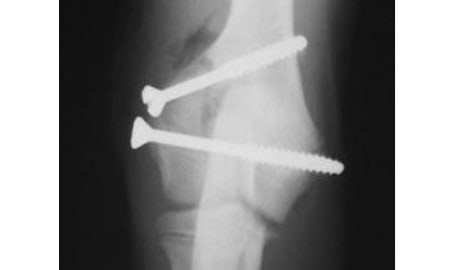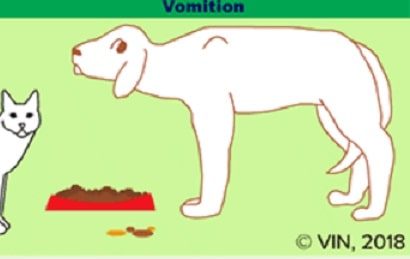Dementia in Senior Dogs

Like people, some older dogs develop cognitive behavior issues, which include difficulties with spatial orientation (a sense of direction while moving around); memory issues, learning, housetraining; and difficulty in recognizing and reacting to human family members. Pet owners have long been frustrated by age-related behavior changes, including house-training problems, apparent memory loss, disorientation, confusion, staring, […]
Ibuprofen / Advil is Very Toxic to Dogs and Cats

Do not give ibuprofen to a dog without specific dosing instructions from your veterinarian. NEVER give ibuprofen to a cat under any circumstance! Ibuprofen (brand name Advil) has been available as a human pain reliever for some time, and has been prescribed for all manner of human aches and pains as well as for other […]
The Cause behind the Tremor…

Dogs often are seen for tremoring or shivering. The patient can be any age or any size. Tremors can involve only certain muscles or body areas or the entire dog. Finding the reason behind tremors is tricky as tremoring occurs for many reasons. First, think about normal reasons for shivering. Such as: cold frightened asleep […]
Rhinitis in Dogs and Cats

Rhinitis is the inflammation of the mucous membrane in the nose. (If the lining of the sinuses is inflamed, it’s called sinusitis. If both the nose and sinuses are affected, it is rhino-sinusitis.) Rhinitis can occur by itself or as part of an upper respiratory illness/infection. Rhinitis can be mild, with just a bit of […]
Fractures in Dogs and Cats

If this article has caught your attention, it may be that your pet has had the misfortune of suffering a fractured bone. This is a traumatic experience for both you and your pet, and there are a few things you should know to help both of you make the best of a bad situation! First, […]
Demodectic Mange in Cats

Demodex mites are normal residents of the skin in virtually all mammal species. For the most part, they live in the hair follicles, don’t cause issues and are not able to spread to another host, much less cross to another species. The cat’s main mite is called Demodex cati. There are two other demodex mites that the cat […]
Coccidia Is an Intestinal Parasite of Cats and Dogs

What are Coccidia? Coccidia are single-celled organisms that infect the intestine. They are microscopic parasites detectable on routine fecal tests in the same way that worms are, but coccidia are not worms and are not susceptible to deworming medications. They are also not visible to the naked eye. Coccidia infection causes a watery diarrhea that is […]
Chronic Bronchitis in Dogs is Not Infectious

Definition and Causes Chronic bronchitis means a non-infectious, inflammatory condition affecting the lining (mucosa) of the large airways (the trachea and bronchi) that results in a cough that is present for more than two months. In most cases, the specific cause of chronic bronchitis in dogs is not identified. Chronic bronchitis is neither infectious nor contagious […]
Heat Stroke – How to Prevent and what to do

Houston is hot – it’s especially hot June through Auguist. This is when we really need to pay attention to our companion animals when they go outside. Dogs, unlike people, can’t get rid of heat by swaeting. The only way they can cool down is to pant. In very hot temperatures for any length of […]
Vomiting or Regurgitation in Dogs and Cats – What’s the Difference?

Vomiting is when the contents of the stomach and upper intestine are forcefully ejected; regurgitation occurs when contents of the mouth, pharynx, or esophagus are expelled. For example, dogs with megaesophagus regurgitate; the food comes back up from the esophagus. The most notable signs of vomiting are nausea and abdominal heaving. Pets that are nauseated tend to […]